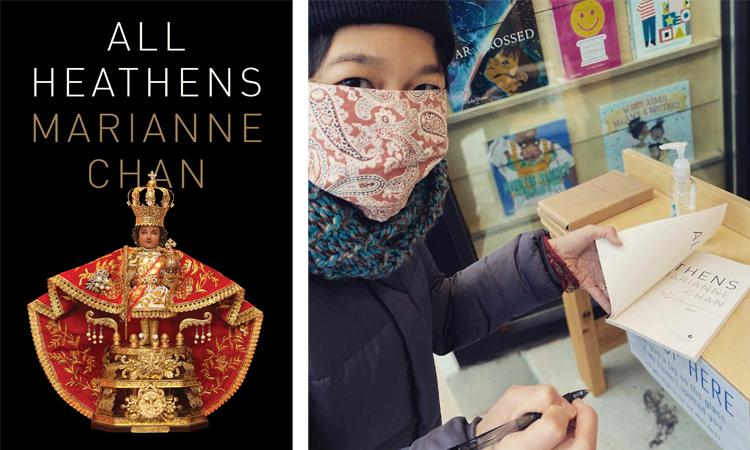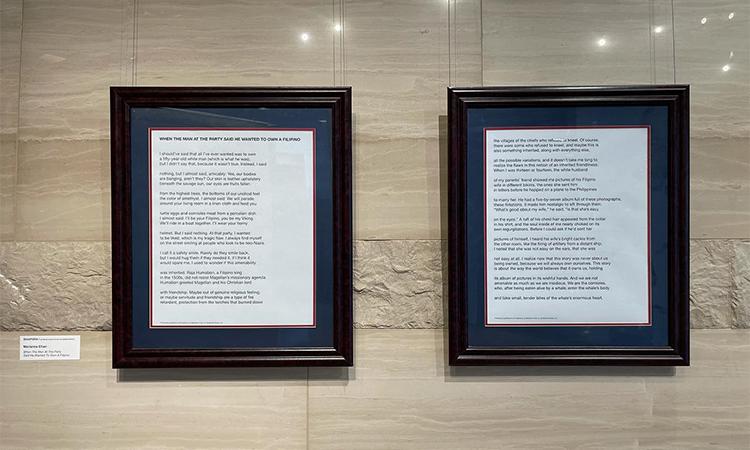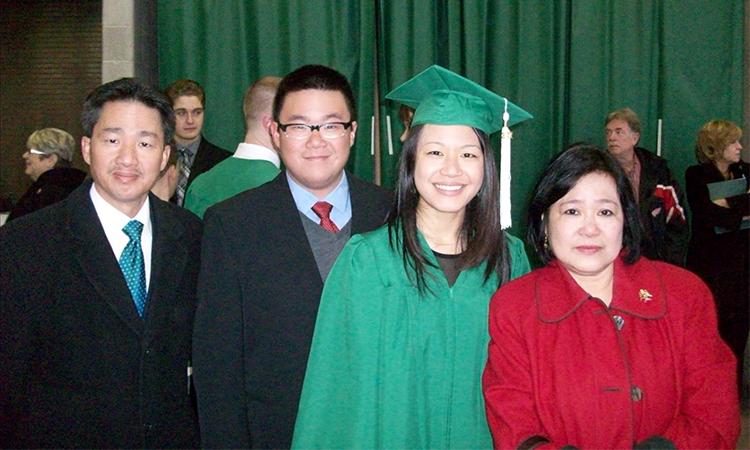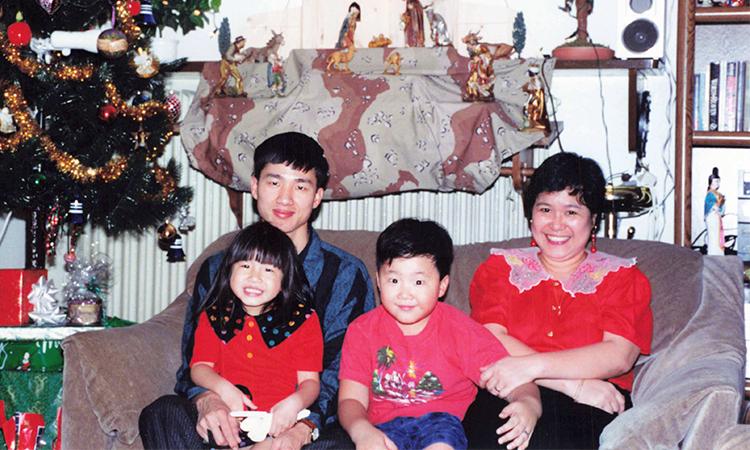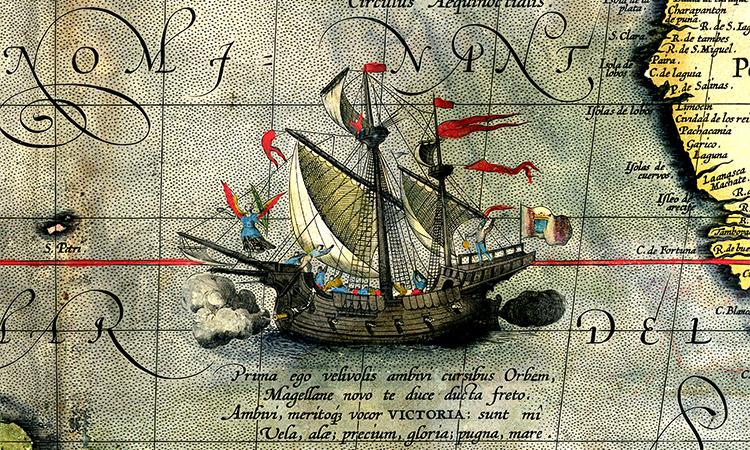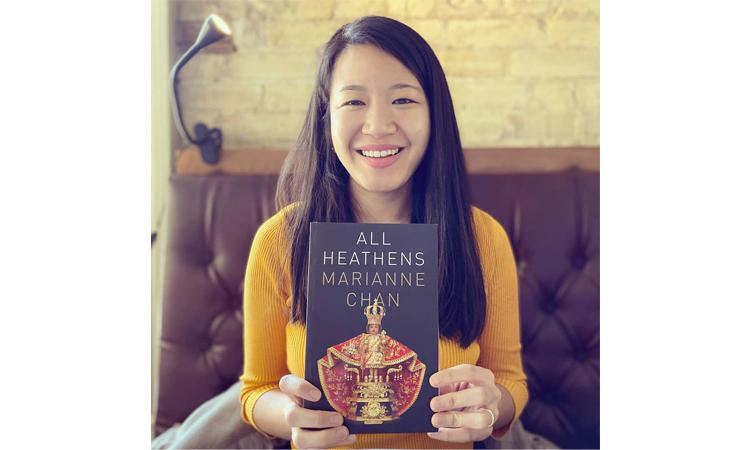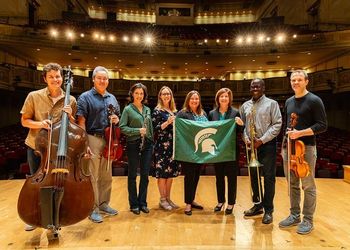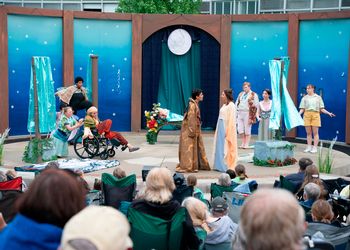Marianne Chan: All Heathens
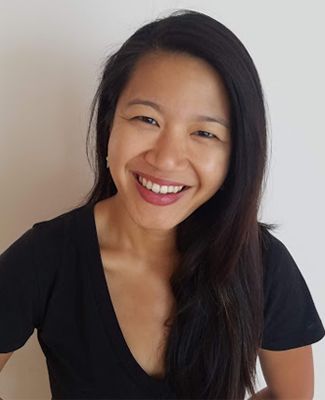
Marianne Chan: All Heathens
“Going to MSU was when I started to understand poetry a little bit more and see all of the different things that you could do in poems, and also see the kind of community you could build around poetry.” —Marianne Chan
May 28, 2021It started with a love of theater and reading growing up.
Now, Marianne Chan (Arts & Letters, ’11) is celebrating her thirty-third birthday, and the recent publication of her first book.
In a year that forced most of us to spend a lot more time at home, Chan used that time to put ink to paper. “All Heathens” is a collection of narrative and lyrical poems, some autobiographical and some historical — and it’s a collection of pieces Chan has been working on since she first established her love of writing poetry.
That’s something she says she found while pursuing her bachelor’s degree at MSU.
“I really loved all of my English classes. I think it was a really pivotal time for me in terms of deciding what I wanted to do,” says Chan.
It wasn’t just literature that captured her attention, though. Chan seized the opportunity of a diverse academic program to explore other sides of her creativity: taking film classes, creative writing, screenwriting … and even Russian. She notes that all of these classes were significant to her development.
For an avid reader like Chan, pursuing fiction writing seemed like a natural fit … until she took a poetry-centered creative writing workshop with Diane Wakoski, University Distinguished Professor Emeritus of English. It was an experience which she says is seared into her mind.
“I think that she [impacted me] the most at MSU. I wasn't expecting to be a poet, I wasn't expecting to be really interested in poetry.”
The initial workshop provided a framework for learning about what was possible with poetry, changing how Chan felt about her future as a writer. Though she describes the workshops as “intense,” Chan jumped at the chance to take another semester with Diane Wakoski, in addition to another workshop outside of class.
“I became really close with her,” she adds.
During that time, Chan started writing poems about her family — stories from her childhood, family traditions and Filipino culture. (Many of these early autobiographical poems have since found a home in her book.) As she moved on from MSU, pursuing a master of fine arts from the University of Nevada, Las Vegas, she also moved on to other writing styles and other subject matter.
And while Chan generally enjoys writing with formal constraints, often using them on her own to draw inspiration for a new piece, something didn’t feel right.
“A huge challenge for me was kind of figuring out what I want, what my goal was as a writer, and not conforming to what other people were doing ... I wanted the approval of my professors and my peers because I thought that they were great and super talented.
But I think that there were ways in which I betrayed myself by doing that. In the end, I did learn a lot from that experience, but I also learned that I just can't try to pursue a style of writing that that doesn't appeal to me.”
Taking all she had learned about herself and writing poetry thus far — in addition to an ever-growing collection of work — Chan began to see a bigger project taking shape, in the form of two converging series.
“‘All Heathens’ is about my family and our immigration from the Philippines to the US by way of Europe,” she explains, “But it's also partly about Ferdinand Magellan and the narrative of the first circumnavigation of the world.”
Chan saw a connection between the early history of colonialism in the Philippines and present-day Filipino culture, fueling a desire to explore that history on a deeper level. With Antonio Pigafetta’s classic text “Magellan’s Voyage: A Narrative Account of the First Circumnavigation” as her reference, she got to work.
“I kind of grew up learning about Magellan. There was this song by a Filipino artist named Yoyoy Villame that my brother used to sing when we were little kids, and I would think of Magellan as being kind of like Adam and Eve ... like a part of the Filipino origin story, in terms of colonial Filipinos. I just grew up with this story, and I was like, why is this story so important?
I had that as a question, so I was sort of interested in understanding that history a little bit better, because I feel like it's kind of mythologized in the way that it was told to me at a young age.”
While writing this book, Chan became well-versed in the history of violence and erasure that occurred throughout the process of colonialism.
She hopes that readers of “All Heathens” will learn something new about Filipino history and culture, and perhaps consider a new perspective on religion. Chan addresses her own conflicting feelings surrounding religion in some of her autobiographical poems, “and the way religion is like an inheritance from that colonial history” — referring to Magellan’s efforts to convert native Filipinos to Catholicism in the 1500s. But perhaps more than that, Chan wants other Filipino-Americans to feel a sense of comradery.
“I just wanted people to feel seen when reading the book. To feel like somebody is sort of writing about their experience, or that their experience is not unique to them, right? To feel like there are other people who are having the same experiences of racism or experiences of alienation, you know, just being in the diaspora ... and so that's something that I really want other Filipinos to take away, to feel kind of like we're in this together.”
These days, Chan has been working on a collection of prose — a deviation from her signature lineated (broken line) poems. When she’s not busy working on her Ph.D., Chan tries to carve out time to add to her next manuscript. As for what the future holds, she is currently working on something that MSU-area residents (and former residents) can look forward to: a fictional tale based on the debunked “origin story” of Lansing.
Twitter: @mariannelchan
Instagram: @mariannelchan
Author: Jessica Mussell, '12


